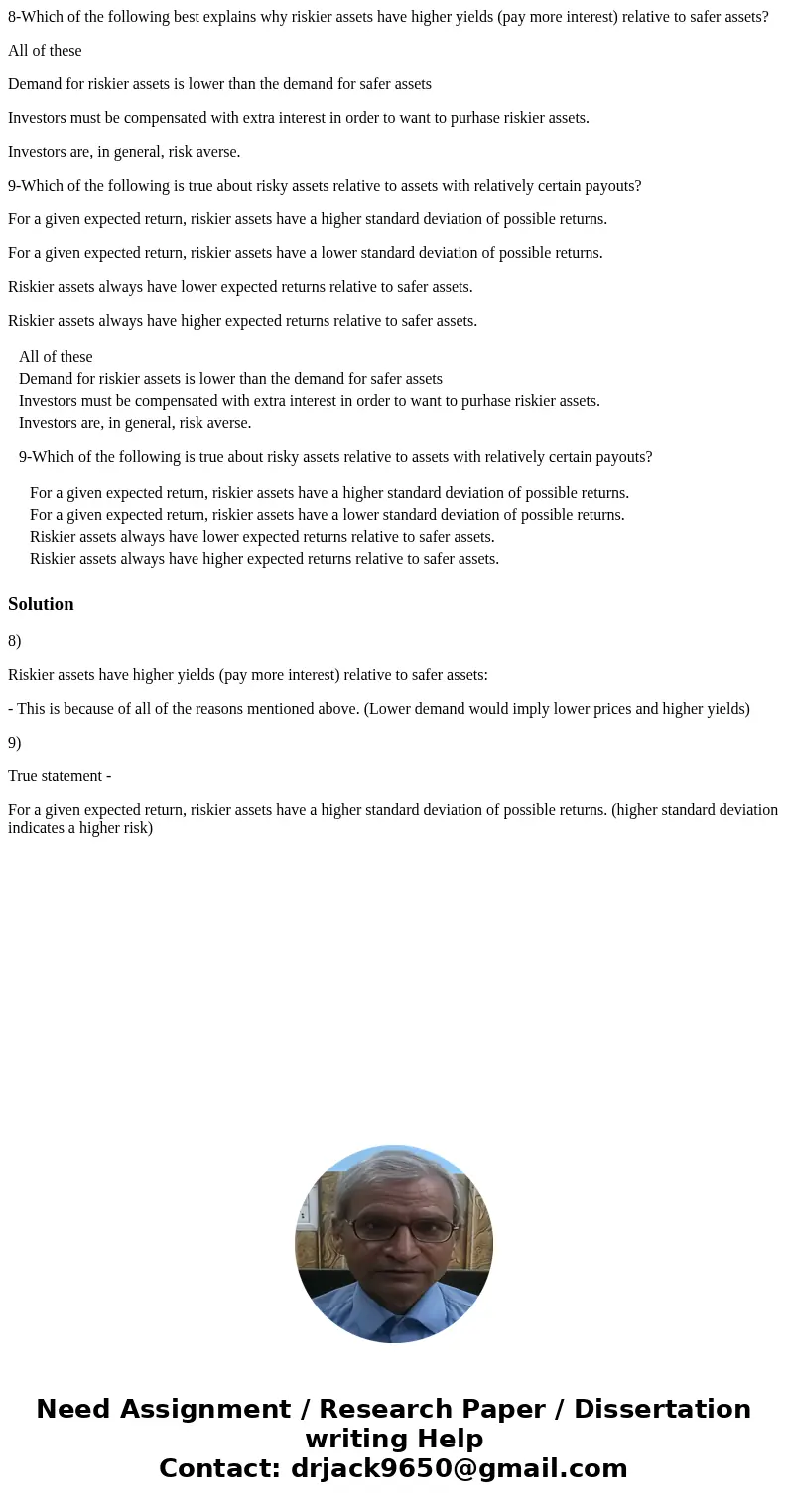8Which of the following best explains why riskier assets hav
8-Which of the following best explains why riskier assets have higher yields (pay more interest) relative to safer assets?
All of these
Demand for riskier assets is lower than the demand for safer assets
Investors must be compensated with extra interest in order to want to purhase riskier assets.
Investors are, in general, risk averse.
9-Which of the following is true about risky assets relative to assets with relatively certain payouts?
For a given expected return, riskier assets have a higher standard deviation of possible returns.
For a given expected return, riskier assets have a lower standard deviation of possible returns.
Riskier assets always have lower expected returns relative to safer assets.
Riskier assets always have higher expected returns relative to safer assets.
| All of these | ||||||||||||||
| Demand for riskier assets is lower than the demand for safer assets | ||||||||||||||
| Investors must be compensated with extra interest in order to want to purhase riskier assets. | ||||||||||||||
| Investors are, in general, risk averse. 9-Which of the following is true about risky assets relative to assets with relatively certain payouts?
|
Solution
8)
Riskier assets have higher yields (pay more interest) relative to safer assets:
- This is because of all of the reasons mentioned above. (Lower demand would imply lower prices and higher yields)
9)
True statement -
For a given expected return, riskier assets have a higher standard deviation of possible returns. (higher standard deviation indicates a higher risk)

 Homework Sourse
Homework Sourse